Table of Contents[Hide][Show]
Lactic acid and glycolic acid are one of the most popular alpha hydroxy acids (AHAs) in skin care today, marketed as powerful ingredients that help decongest clogged pores, remove dirt and buildup, and lessen the appearance of wrinkles and other signs of aging.
Lactic acid is actually more gentle than glycolic acid, but there are still some concerns when using either of these AHAs. It comes down to personal preference amongst us natural skin care enthusiasts, as some may think all AHAs are too harsh for skin, whereas others may selectively use lactic acid formulas that are made with high-quality ingredients derived from nature.
The use of acids may exfoliate your skin, but over time, it could lead to increased aging due to sun damage if the necessary steps are not applied for proper usage.
What is Lactic Acid?
Lactic acid is a natural acid derived from milk, fruit, vegetables and other plants. It’s found in over-the-counter skin care products used for anti-aging, and is also used in chemical peels. With a reputation for being gentler and less irritating than glycolic acid, it also hydrates, increases natural barrier lipids in the outer layer of skin, and lightens and brightens the look of skin for those with discoloration.
Mainly, however, lactic acids and other AHAs are used to exfoliate.
Is it Safe?
In 2002, the Los Angeles Times ran a feature on AHAs, noting that the public was failing to protect their skin from the sun when using them. AHAs break down the outer layer of skin, which makes them effective exfoliators, but in the process, they leave skin more vulnerable to the damaging effects of UV rays. That means without the right protection, they can not only lead to sunburn but may actually make skin worse over time because of the lasting damage of sun exposure. Even worse, if skin burns, it’s more at risk for skin cancer down the road.
According to the LA Times, AHAs can increase the possibility of sunburn and sun sensitivity for up to a week after they’ve been applied. Most users don’t realize that and may use sunscreen for a day or two, but then forget to maintain protection. Even intermittent sun exposure can damage sensitive skin.
Exfoliation: What Works and What’s Safe?
Natural Solutions for Uneven Skin Tone
Face Exfoliator 101: How to Find the Perfect Routine for Your Skin
The FDA reported that they received a total of 114 adverse dermatologic experience reports linked to AHA-containing skin care products between 1992 and 2004. The number was likely much higher as many don’t bother to report their experiences. Problems included burning, dermatitis or rash, swelling, pigmentary changes, blisters or welts, skin peeling, itching, irritation and tenderness, chemical burns, and increased sunburn.
The FDA also notes studies that confirm the effects of AHAs in skin care. For example, one showed that applying AHAs to the skin results in increased sun sensitivity, and after four weeks, volunteers’ sensitivity to skin reddening produced by UV rays increased by 18 percent, while their sensitivity to UV-ray-induced cellular damage doubled, on average.
The FDA recommended updated warnings on AHA products to alert users to the increased risk of sunburn, but these warnings typically don’t mention skin damage or skin cancer risk.
It is important to note, however, that these studies covered AHAs as a group. As mentioned, lactic acid is a gentler option compared to glycolic acid.
So, is lactic acid safe to use? Well, it depends on the formula you’re using and the ingredients your product is comprised of. Lactic acids can be one of the most non-irritating and hydrating acids on the market, which allows you to effectively and deeply exfoliate the skin for a healthy-looking glow. You’ll just want to make sure you’re using one with high-quality, nature-derived ingredients from a brand you trust.
When you are including an AHA into your routine, you’ll also want to apply it in the evening when there is less potential for your skin to be exposed to the sun. It’s also a good idea to avoid sun exposure in the coming days, wear a vitamin C serum in your morning routine for an antioxidant boost, apply sunscreen throughout the day, and wear appropriate clothing and accessories (like a hat) to keep skin under shade.
Safer, More Nourishing Choices
The Cosmetic Ingredient Review (CIR) expert panel concluded that glycolic and lactic acid are safe for use in cosmetic products at concentrations of 10 percent, “when formulated to avoid increasing sun sensitivity or when directions for use include the daily use of sun protection.”
Sounds like it’s safe to use as long as you’re very mindful about sun protection, but still, I question the wisdom of using specific types of AHAs long-term. Even the FDA admits that studies “suggest” the sun sensitivity effects are temporary and go away once you stop using the products, but the agency adds that, “skin sensitivity to UV radiation…may increase after four weeks of topical application of glycolic acid.” They conclude that more studies are needed to determine the lasting effects of AHAs on the skin’s ability to withstand UV exposure.
If you are looking to incorporate an AHA into your routine, consider using one that has honey-derived lactic acid with cooling botanicals, like our Resurfacing Facial Exfoliant. Or you can use honey by itself, as it contains gluconic acid, which is a milder acid that gently exfoliates and brightens the appearance of your skin. Fruit enzymes from papaya (papain) and pineapples (bromelain) also contain low levels of acids that are well tolerated by sensitive skin. Exfoliating sugar scrubs and plant-based scrubs can also help. No matter what type of exfoliating you do, always protect your skin from environmental stressors with natural antioxidants like vitamin C, vitamin E, and plant extracts (found in my Anti-Aging Serum, for example), and wear sunscreen with non-nano zinc oxide.
Have you had a bad experience with lactic acid or other AHAs? Please share with us.
Sources
Jane E. Allen, “A hidden danger in skin care,” Los Angeles Times, December 16, 2002, http://articles.latimes.com/2002/dec/16/health/he-alpha16.
“Alpha Hydroxy Acids in Cosmetics,” FDA, http://www.fda.gov/cosmetics/productandingredientsafety/selectedcosmeticingredients/ucm107940.htm.
“Guidance: Labeling for Cosmetics Containing Alpha Hydroxy Acids,” FDA, http://www.fda.gov/Cosmetics/GuidanceComplianceRegulatoryInformation/GuidanceDocuments/ucm090816.htm.
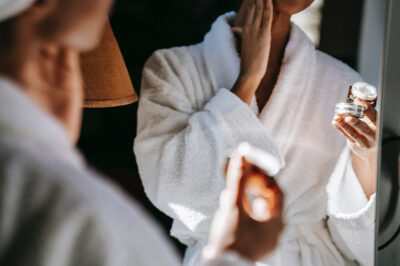
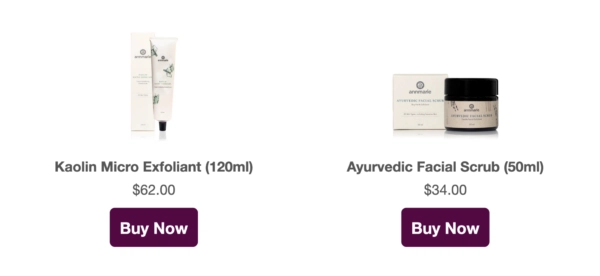

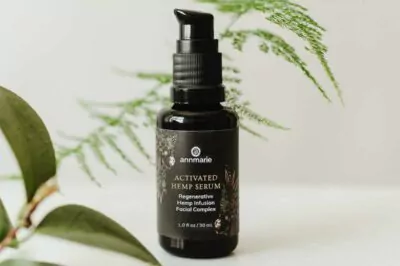
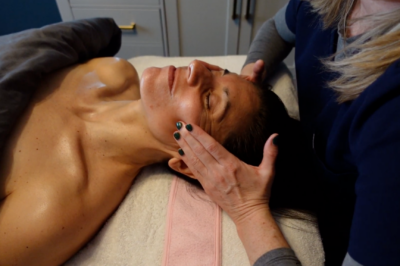
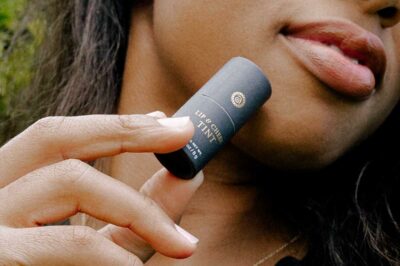
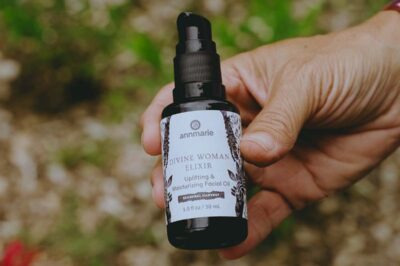
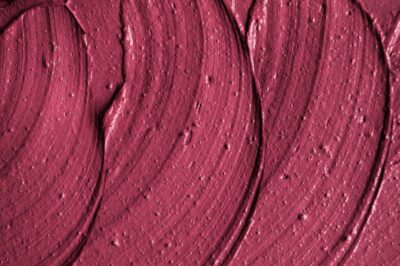
from ‘The Myth of Natural Parabens’ (ewg.org): Most claims of naturally occurring parabens fail to provide a reference to a peer-reviewed scientific study to confirm their assertions. Scientific literature about natural sources of parabens is sparse. In contrast, there are many studies using sophisticated analytical techniques to examine the chemical constituents of certain items. In these studies — listed in the table below — no parabens are included in the chemicals found in blueberries and many other alleged natural sources of parabens.
30 years ago as a high school student I used Lac-hydrin on a daily basis, over my whole body except my face. I had gotten the prescription because the skin on my hands and feet was peeling because of water sports. It seemed to make my skin so soft, I thought it wouldn’t hurt to use it liberally. I used this for a period of 4 years and used at most an SPF 15 sunscreen perhaps 50% or the time. What developed, however, was an extreme sun sensitivity, and it continued for over 25 years even though I had stopped using the lotion. I would get hives from overexposure to the sun (even after 20 mins of direct sunlight) and I even experienced anxiety if I was overexposed— and I would have to run to shade. As a medium-toned gal, I burned as if I had porcelain skin! My sensitivity has lessened now, I believe from the lifesaver essential oil lavender, which I add to all my skin oils and lotions. I do notice that the skin on my feet- where I had applied the lotion very thickly, is quite wrinkled and the skin still burns easily. I believe that consistent use of aloe and lavender can reverse the sensitivity. I would caution against using any lactic acid on skin that will be exposed to the sun! Many sunscreen themselves have harmful chemicals, so why go to the double exposure? Thanks Annmarie for your article— the big skincare companies don’t want to hurt their bottom line, but it’s at the expense of our long-term health.
Have any on you experienced darker skin / tanning while using AHAs? I have noticed my skin is a shade darker since I started on lactic acid
This is good to know that you have to be careful longer than just a couple of days. So far, lactic acid is worth it for reducing my age spots. I’m careful each day to wear sunscreen and a hat and to avoid exposure when the sun as at its peak. I’m naturally drawn to shaded areas and don’t enjoy being in direct sunlight, so I figure that helps reduce risk.
I dunno, I have to say I’ve had wonderful results with lactic acid based products.
I’d like to see info on how effective things like honey could be because I’m skeptical. I know honey includes some acids that “on paper” should help, but are those acids effective in relation to the ph levels that can so easily deem them ineffective?
Hey so you mentioned that lactic acid can be made from milk, fruit, vegetables and other plants, but are there any significant differences between them? Do any of them create a higher cell turnover rate, making your skin more susceptible to sun expose? And are any of them known to be more of a skin irritant? Also what are your thoughts on mixing it with a carrier oil such as jojoba to use as a serum? I think that Pestle & Mortar uses lactic acid in their new serum that everyone is going crazy over.
Thank you so much, such an informative and clear article
After 80 years of suffering with dry flaking skin I have found that a 12% lactic acid lotion has made my skin feel normal—no side effects whatsoever just relief from what often was an embarrassing ailment–I am delighted that I have at least found a solution after trying many creams and lotions and consulting numerous dermatologists
To make a blanket statement that all aha’s are too harsh for the skin is incorrect. They are necessary to treat many kinds of skin conditions like adult acne and great for genetically thick, oily skin. I have been plagued with both in my life and glycolic acid is necessary to maintain clear skin for me and many of my clients who had not found relief prior to using daily aha’s.
As for making skin more sensitive to the sun, yes they do. However, with over 75% of UVA damage coming from daily sun exposure everyone needs to wear protection every day regardless of whether or not they are using AHA’s, and if this is done, users will not find they incur premature photo aging. On the contrary, AHA’s keep skin cell turnover rates high and are powerful anti aging tools. I’ve been treating skin for over 15 years and these acids have proved to be safe and invaluable for so many people. Each person has different exfoliating needs, and while gentle methods work for some they are simply not strong enough for others.
Angela I agree, and am disappointed this article advises steering away from AHAs instead of emphasizing the importance of proper sun protection every day for everybody!
A terrific article content, I couldn’t recover from my bad skin scenario until I discovered this wonderful healthy cystic acne treatment
Just to let you know, Vitamin E, when applied in high concentrations to the skin, will cause redness and irritation to sensitive individuals. I test cosmetic ingredients on a daily basis.
Parabens, found in berries and other fruits, are often claimed to be dangerous by ‘natural’ proponents; yet they are extremely gentle and non-hazardous when you consider how they are used. The paraben studies that cite cause for concern, test parabens at 25,000 times the normal levels used in cosmetics. This is misleading.
All ingredients, in excess, can cause side effects. If you drink too much water – only 12 times the recommended daily intake -you can die.
Please put things in perspective.